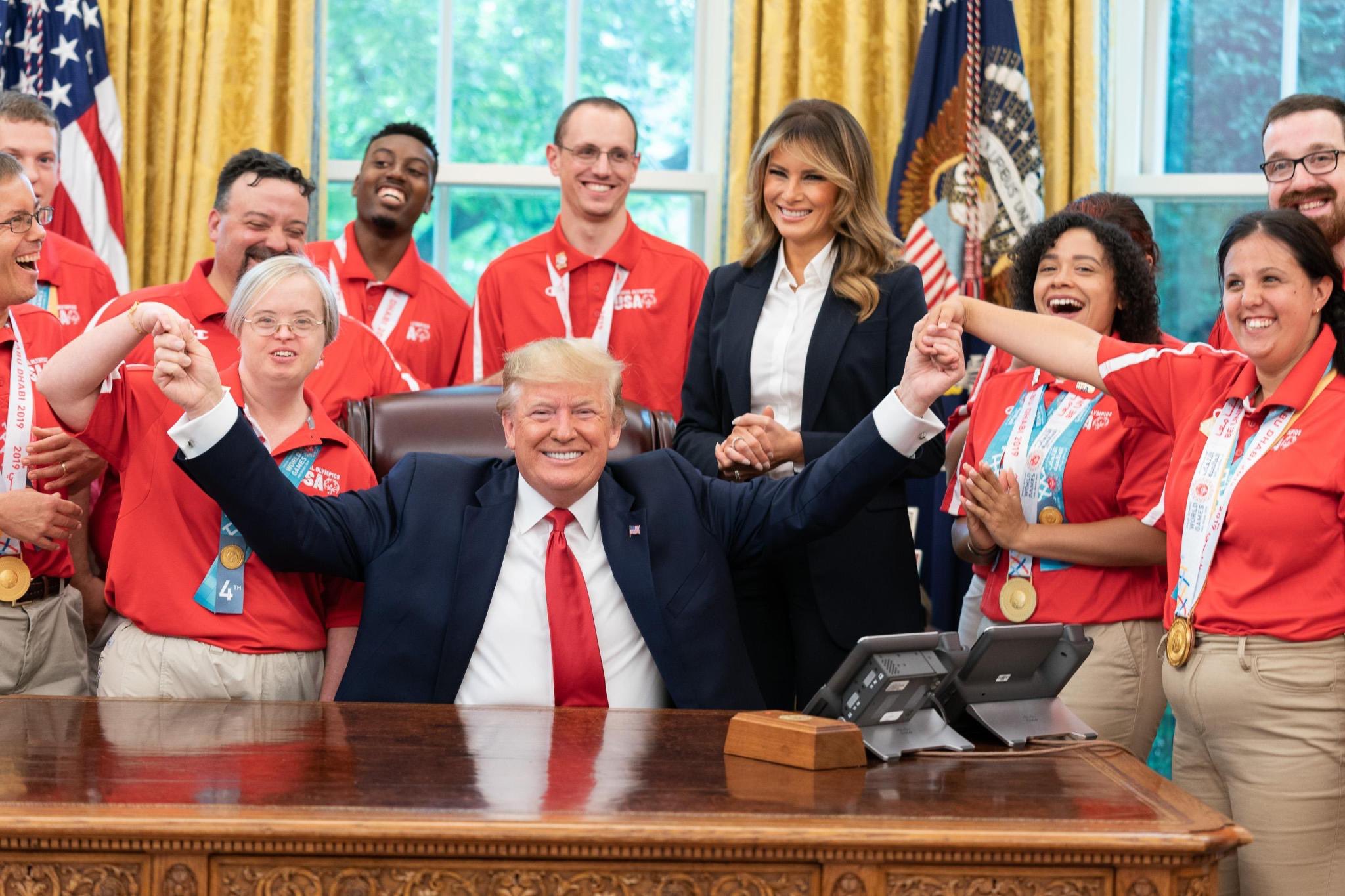Trump Vows to Defend US Tariffs as Supreme Court Showdown Looms; India, China, and Russia Tighten Economic Axis
United States President Donald Trump has sharply defended his administration’s sweeping reciprocal tariffs, vowing to appeal a federal court decision that struck them down as unconstitutional.
The case, now heading to the U.S. Supreme Court, threatens to dismantle one of Trump’s most significant economic policy pillars and could reset the legal balance between Congress and the presidency in trade governance.
 |
| Image Source: Office of the First Lady |
Appeals Court Strikes at Tariff Foundation
The U.S. Court of Appeals for the Federal Circuit ruled last week that President Trump’s reliance on the International Emergency Economic Powers Act (IEEPA) to justify unilateral tariffs exceeded legal authority.
The decision temporarily suspends enforcement of the tariffs until October 14, 2025, providing the administration time to petition the Supreme Court for an emergency stay and full review.
The ruling directly challenges Executive Order 14257 (April 2025) and its July amendment, which had imposed up to 25% duties on Indian exports, 15% on Japanese goods, and variable rates on products from the European Union.
India was further hit by a separate 25% penalty on Russian-origin oil and refined products, raising its total tariff exposure to 50% -- among the highest for most U.S. trade partner.
India’s Export Sector Under Strain
India, which exports approximately $86.5 billion worth of goods to the U.S. annually, has seen about two-thirds of its trade volume affected.
Sectors most impacted include textiles, jewelry, leather goods, and energy-intensive industries.
India has criticized Washington’s measures as “selective and unjustified,” pointing out that China remains the largest buyer of Russian crude, and the EU continues to purchase Russian LNG at scale.
India's External Affairs Minister S. Jaishankar had said in Moscow last month, “We are perplexed at the inconsistency in the argument. Economic coercion, when selective, loses legitimacy.”
SCO Summit: Multipolar Axis Emerges
The tariff tensions come as India deepens ties with both China and Russia.
At the Shanghai Cooperation Organisation (SCO) Summit in Tianjin this week, Prime Minister Narendra Modi met President Xi Jinping and President Vladimir Putin in separate high-profile bilateral meetings.
Xi described China and India as the “dragon and the elephant” and called for cooperation based on mutual trust and regional responsibility.
Modi affirmed India's intent to work with China while maintaining border stability and welcomed the resumption of direct flights and the Kailash Mansarovar Yatra.
The next day, Modi and Putin held what was described as an “excellent” meeting, reaffirming their Special and Privileged Strategic Partnership, with a focus on energy, finance, civil nuclear cooperation, and trade de-dollarization.
Russian Foreign Minister Sergey Lavrov had echoed India’s concerns, calling the U.S. tariffs “yet another attempt to weaponize trade.”
Moscow reiterated support for BRICS mechanisms, alternative settlement systems, and corridors like the International North-South Transport Corridor to bypass U.S.-controlled networks.
Trump Defends Tariffs as Economic Shield
Speaking at the White House, Trump blasted the appeals court ruling as “highly partisan” and “economically dangerous.”
“Tariffs are the best tool to protect American workers, farmers, and manufacturers,” he said. “Removing them would make us financially weak. We will fight this at the Supreme Court, and we will win.”
Trump argued that his tariff regime had triggered a manufacturing renaissance, drawing AI firms, automotive giants, and technology investors back to U.S. soil.
“We’ve taken in trillions. Without tariffs, we’d be a third-world country in advanced manufacturing,” he claimed.
He also cited the example of Harley-Davidson, which faced a 200% import duty in India and was forced to set up a local plant to bypass costs.
“That’s exactly why tariffs work,” he said.
Legal Stakes at the Supreme Court
If upheld, the appellate decision would strip future presidents of unilateral tariff powers, returning control to Congress and potentially unwinding the existing duties.
If overturned, it would set a historic precedent allowing the executive branch to deploy tariffs as a permanent tool of foreign and economic policy -- without congressional approval.
Analysts warn that a ruling in Trump’s favor could reshape global trade flows, make tariffs a standing instrument of U.S. diplomacy, and potentially escalate retaliatory measures from affected nations.
India’s Strategic Balancing Act
India is already adapting. While ties with Washington remain strategically important, New Delhi is now broadening economic partnerships across Asia and Eurasia:
-
Russia for energy stability and defense integration
-
China for regional coexistence and multilateral diplomacy
-
Japan for high-tech and green investments
-
BRICS and SCO for currency, trade, and transport alternatives
India’s balancing strategy was on full display in Tianjin. As Modi, Putin, and Xi stood shoulder to shoulder, the message was clearly that the world is no longer unipolar.
